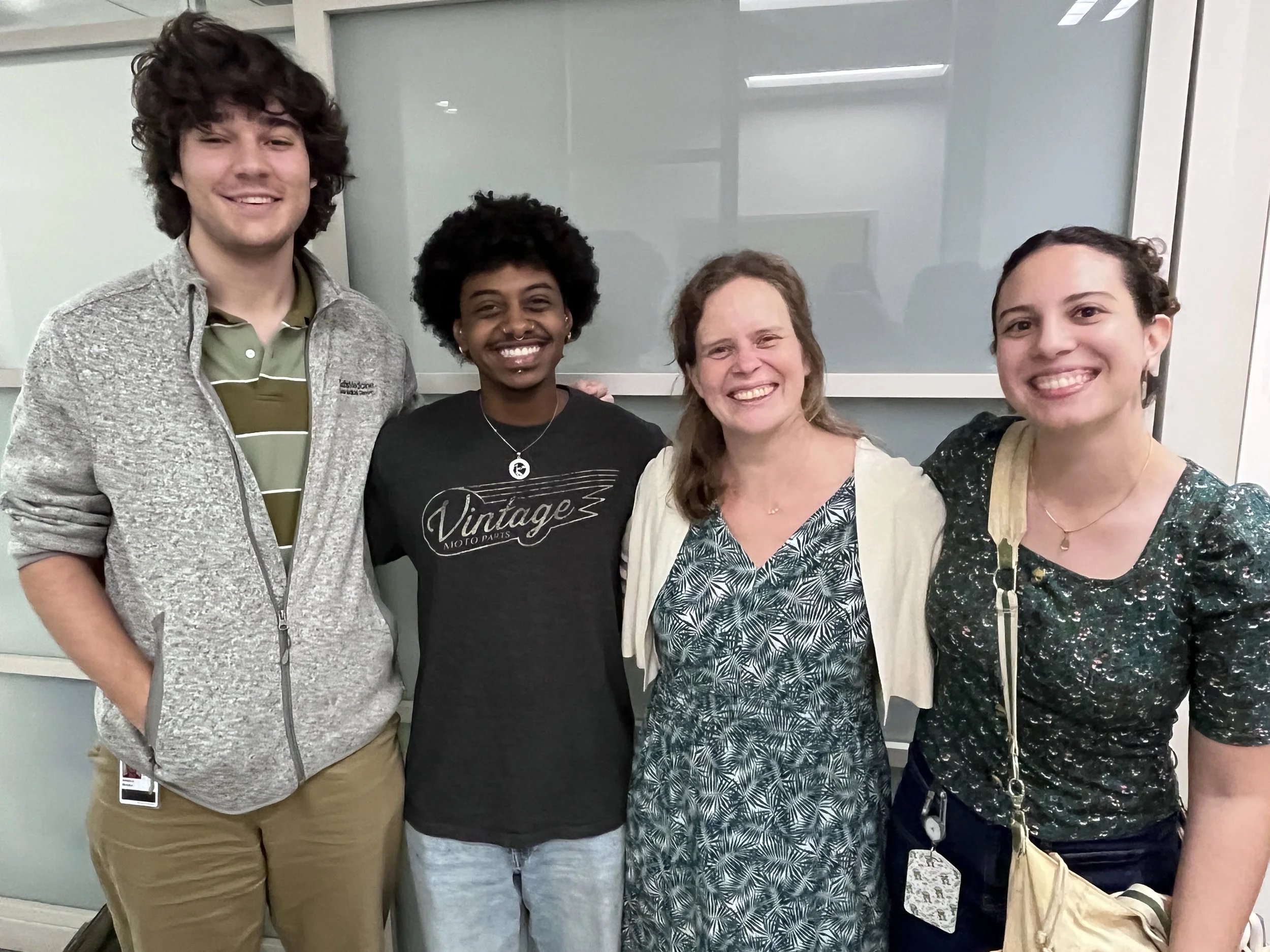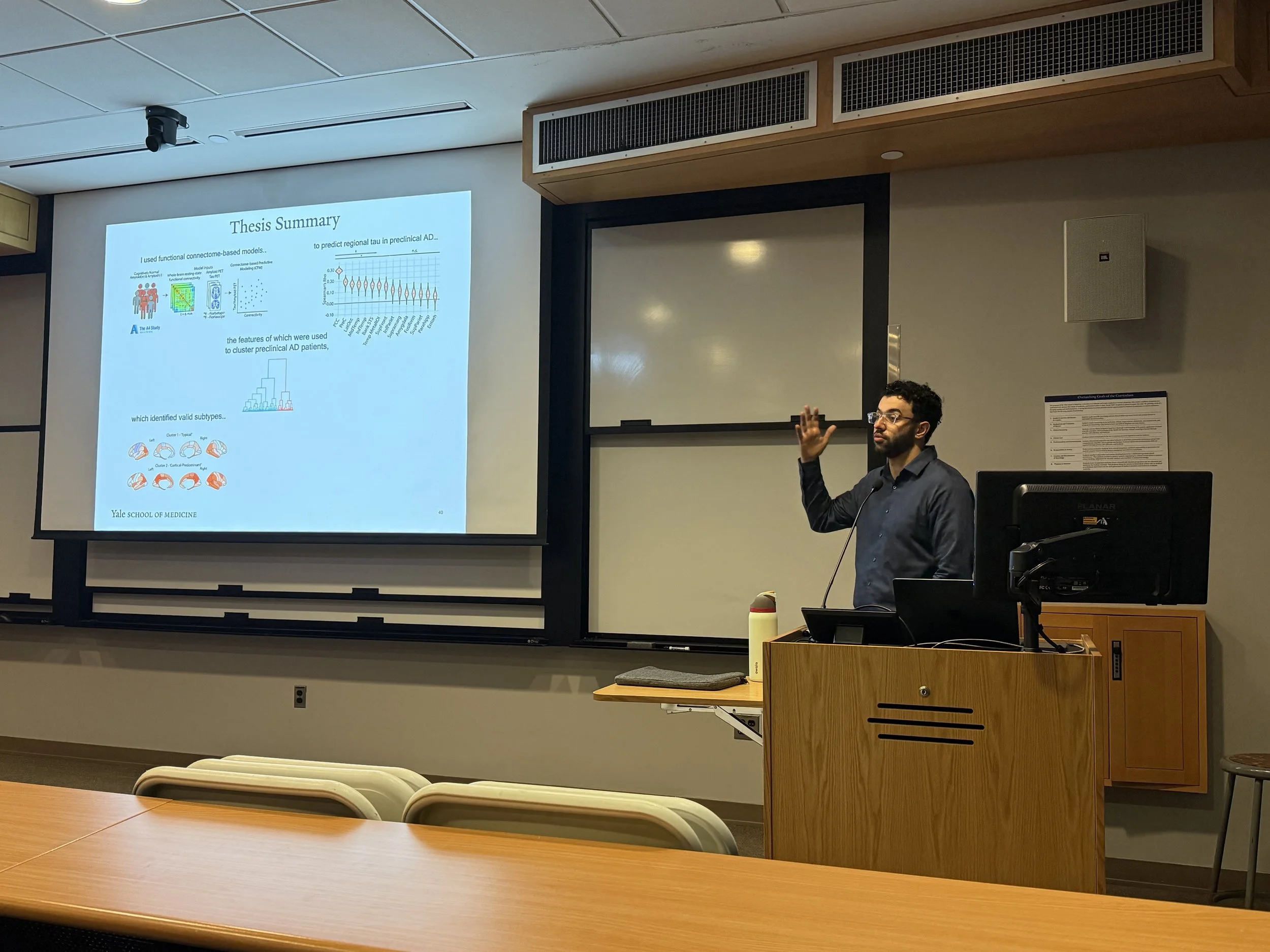
Welcome!
Our lab employs advanced neuroimaging techniques to understand how both typical and atypical Alzheimer’s disease spreads across brain networks in a sex-dependent manner, with hopes of identifying targets for future treatments.
Dr. Fredericks gives insight into the Alzheimer’s disease research our lab does at Yale











“The very names of certain diseases inspire dread. This is especially so of Alzheimer’s disease—and its diagnosis may be taken almost as a death sentence. But this does not take into account the enormous variation there may be in the character and course of the disease, nor the varied adaptations and strategies by which life may be maintained and enjoyed despite the disease’s advance.”
― Oliver Sacks, The Case of Anna H.
Most of us think of Alzheimer’s disease as primarily a disease of memory. Many of us have a friend or loved one who has personally experienced this most common “amnestic” form of Alzheimer’s disease, struggling more and more with short-term memory, having trouble finding their way on familiar roads, and asking family members repeated questions. And indeed, most of the time Alzheimer’s disease targets brain structures that specialize in supporting these functions. However, for reasons we don’t yet understand, Alzheimer’s sometimes targets brain structures and networks that are specialized for visuospatial processing (in which case we call it posterior cortical atrophy), or for certain aspects of language (logopenic aphasia), or for organization and judgment (frontal variant Alzheimer’s disease).
Our lab focuses on these less common forms of Alzheimer’s disease, using advanced neuroimaging techniques to better understand how pathology spreads across brain networks. We also have a special interest in understanding the role that small structures within the brain, such as brainstem and thalamic nuclei, play in functional network abnormalities in Alzheimer’s disease. Our hope is that our work will result in earlier identification of illness, precise monitoring of illness for future drug studies, and identification of targets for direct treatments (such as electrical stimulation) in the future, particularly for patients with atypical variants of Alzheimer’s disease.
Dr. Carolyn Fredericks’ research laboratory is located at Yale University in New Haven, Connecticut, USA. Her team is part of Yale’s Clinical Neuroscience Imaging Center (CNIC), a multidisciplinary group applying innovative imaging methods to the study of brain disease. Clinically, Dr. Fredericks sees patients with a variety of cognitive and behavioral concerns. She specializes in the diagnosis and treatment of neurodegenerative disorders.




